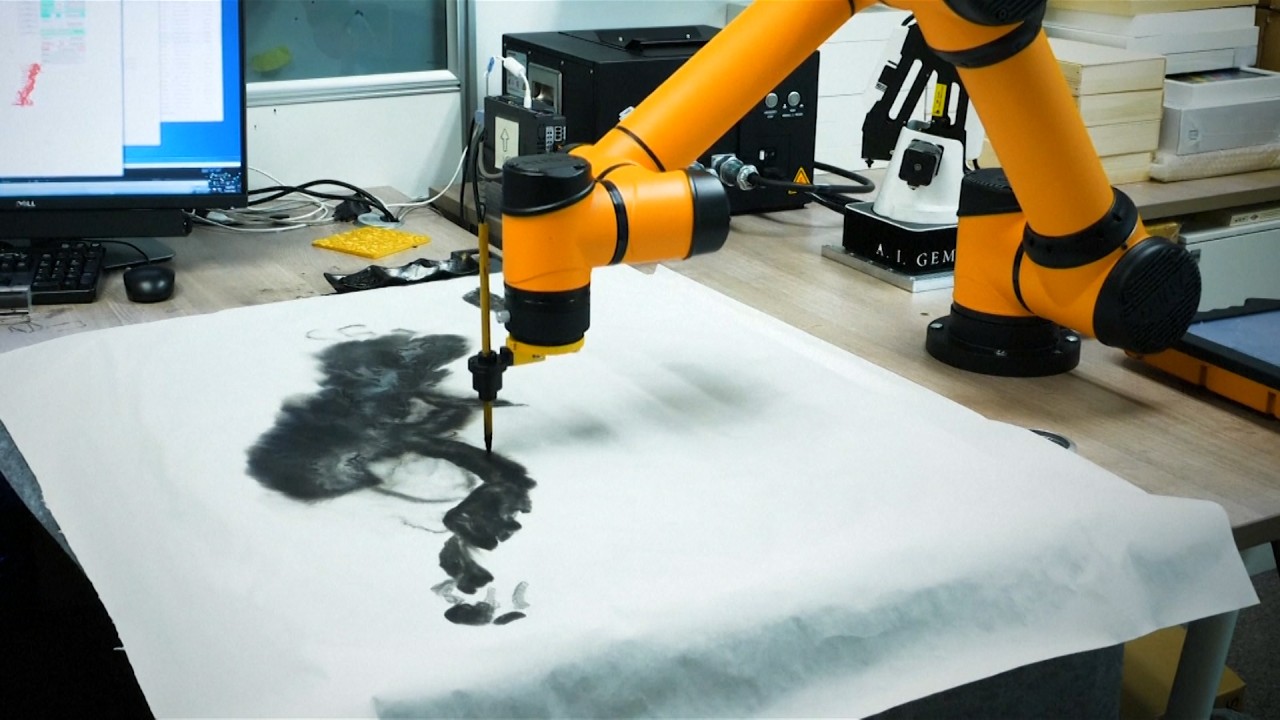Inside China Tech: tracing the historical roots of recent AI, moneylending innovations

Now, AI technology is making it possible to put a realistic face on a number of these historical figures.
Hu Wengu, an independent Chinese video game developer and programmer, has used AI to recreate the animated faces of Chinese emperors from the Song, Ming and Qing dynasties – a period that dates more than 1,000 years – based on historical portraits.
Hu relied on PaddleGAN, an open-source machine learning project by Chinese internet search giant Baidu, and Artbreeder, an online AI tool that mixes and alters images, to recreate the emperors’ faces. In addition, Hu used a system called AI Studio to capture his own facial expressions and apply them to those faces, giving them more lifelike expressions.
To add another layer of realism, Hu also used SeetaFace, an open-source facial recognition tool developed by the Chinese Academy of Sciences, to calculate similarities between the AI-restored faces with those of the actors who portrayed them in Chinese period drama shows and films.

01:47
AI robot creates Chinese traditional ink paintings
AI robot creates Chinese traditional ink paintings
Of course, such an endeavour would not be without controversy. While many were impressed by the results, other internet users said the paintings that formed the bases of his work did not provide the true faces of the emperors.
Hu himself has acknowledged that the restored faces are the results of what AI derived from the portraits of the emperors. “The original painters must have their own artistic approaches in portraying the emperors,” Hu wrote. “Is this what emperors in history really looked like? We still don’t know.”
Historically accurate or no, you have to admit that the results are pretty cool. Check them out and read Iris Deng’s full story:
Fast cash
The earliest forms of lending can be traced to Mesopotamia around four millennia ago, when farmers began to borrow seeds and livestock issued against later repayment. Fast forward to the modern age, and China has put a digital twist on this ancient practice.
The digital microlending business in China can be traced back to around 2007, when PPDai – later known as New York-listed FinVolution – was founded in Shanghai. At around the same time, Chinese e-commerce giant Alibaba Group Holding partnered with China Construction Bank, the country’s second-biggest bank, on a loan service for small enterprises that calculated loan terms based on the borrower’s transactions on the e-commerce firm’s platforms, instead of regular financial records like property ownership.
In the years since, China’s tech giants have applied their AI and big data capabilities to the business, with algorithms crunching a range of user data to better predict consumption patterns and gauge credit risk.
One such service is Huabei, the consumer loan service run by major Chinese digital wallet Alipay. Huabei’s loan terms are largely determined by Alipay parent company Ant Group’s Zhima Credit, a credit-scoring system based on a user’s digital footprint, including records from payment systems and even whether he or she returned a shared bicycle on time.

03:04
What is Jack Ma’s Ant Group and how does it make money?
What is Jack Ma’s Ant Group and how does it make money?
(Ant Group is an affiliate of Alibaba, which owns the South China Morning Post.)
The country’s microlending industry was made possible by its massive mobile phone user base, the biggest in the world in a country where most people went straight to the mobile internet and skipped the PC.
Around 277 million people accessed the internet via a mobile phone in China as of June 2010. A decade later, that figure has more than tripled to 932 million, according to the China Internet Network Information Centre.
Traditional banks in China are still a major source of personal loans – but historically their main focus in the country has been the provision of mortgages. In the first half of the year, more than 75 per cent of personal loans provided by China’s “big four” state-owned banks were in the form of mortgages, according to state media outlet Xinhua.
This leaves digital microlenders to make up for a shortfall in traditional credit services for consumers and SMEs, according to Professor He Zhiguo from the Booth School of Business at the University of Chicago.
Read the full feature for more:
Trip cut short
Back to the present: TripAdvisor was among 105 apps removed from China’s app stores as part of an ongoing series of crackdowns by Beijing to clean up the country’s cyberspace.
The Cyberspace Administration of China (CAC) said on its website on Tuesday that the apps were pulled after widespread complaints by Chinese internet users about the spread of “obscene, pornographic, violent and other illegal” online content, including services such as gambling and prostitution.
The internet regulator said the removed apps were found to have violated several laws and regulations, without providing details on each app’s offence.

03:34
Inside a Chinese internet censorship centre
Inside a Chinese internet censorship centre
The other offending apps on the CAC’s blacklist include Sugar, a social media platform for Gen Z users, and cartoon app 51 Manhua.
Under Chinese President Xi Jinping, the ruling Communist Party has tightened its grip on the internet and censored content deemed unsuitable, including pornography, gambling, fake news and political dissent.
The CAC’s latest move comes more than a month after its crackdown on popular local mobile browsers, in an attempt to better control what it described as information “chaos” in China’s cyberspace, as Coco Feng reports:
Before I go, do check out the new China AI Deep-Dive: Computer Vision Report by SCMP Research, which delves into computer vision unicorns that have made global headlines against the backdrop of the US-China tech rivalry.
See you next week!
Source link



